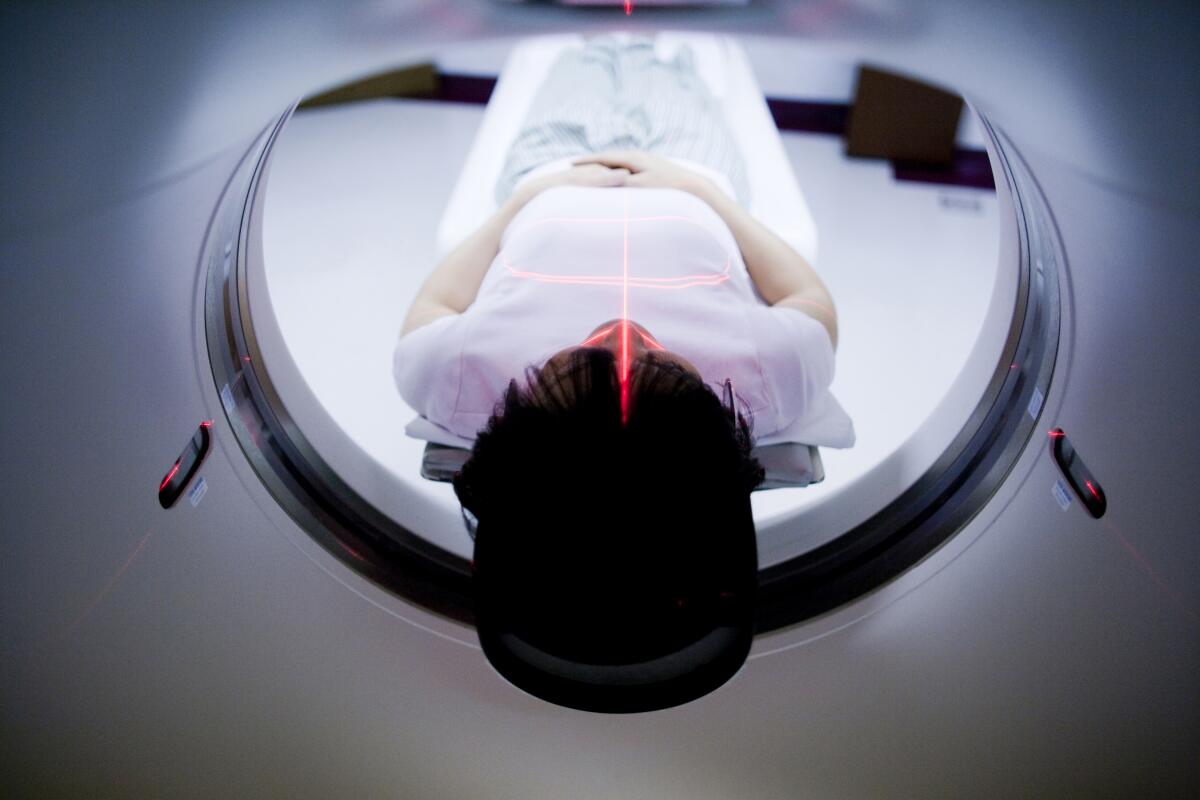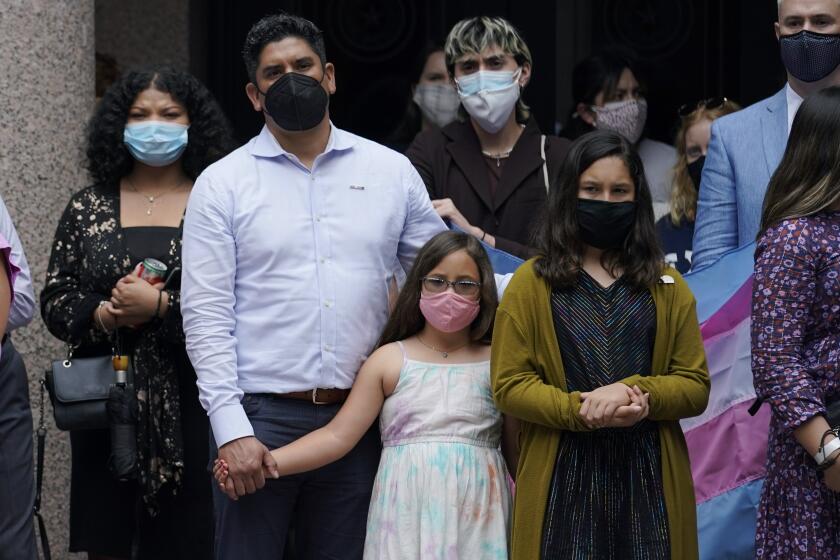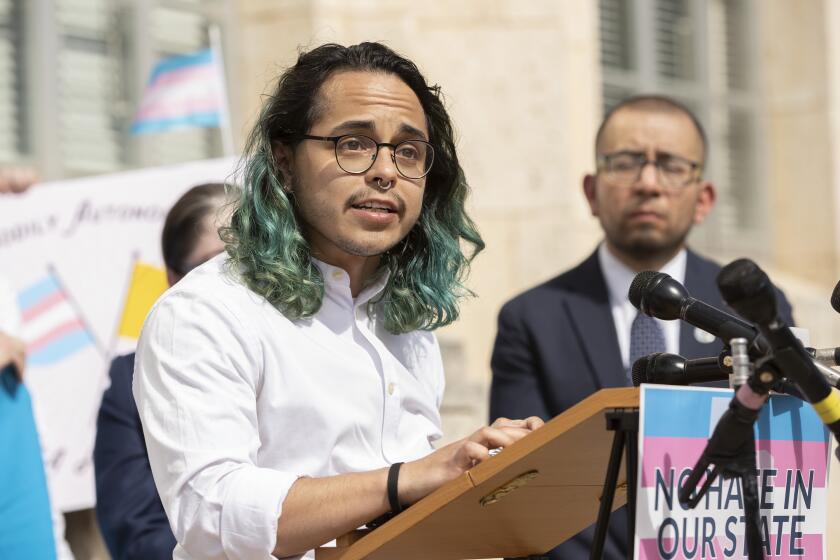Op-Ed: Why is it so hard to get healthcare as a trans cancer patient?

- Share via
Nobody can know what it is like to be a cancer patient without actually having cancer. Before I was diagnosed, I had proximity to cancer patients and experiences in healthcare that I thought gave me insight. In some ways they did. Yet although I had previously experienced discrimination for being transgender, nothing could have prepared me for what I was about to endure as a trans cancer patient.
The abusive treatment I have experienced makes clear how having cancer and being trans are stigmatized in our healthcare system.
In the summer of 2020, at age 26, I was diagnosed with a rare eye cancer — uveal melanoma. I live in Oakland and was fortunate to have most of my care close by in San Francisco, though due to the rarity of my illness I traveled to Davis for radiation. Many patients with my type of cancer have to travel out of state or drive several hours to access care.
States are pushing anti-trans policies that fly in the face of research and medical expertise.
Prior to being diagnosed with cancer, I did not have many medical concerns. Nor did I consider myself disabled. That changed, fast — within a week of having symptoms I permanently lost vision on my left side. I quickly developed severe migraine headaches in response to radiation, and after months of complications and excruciating pain, my eye was removed.
I expected none of this. I found myself being disabled and having a facial disfigurement, with one eye gone and unable to wear a prosthesis to blend in. Cancer and its treatment caused changes for me that cannot be undone. I was learning the hard reality of many cancer patients, trying to grapple with experiences I wasn’t prepared for in any way.
Contending with this disease itself has been awful. Yet the most disconcerting and disappointing aspect of the process has been the ways I have been treated by the medical system.
While I am grateful to receive care, existing as a trans cancer patient comes with ugly realities, even in the supposedly “trans-friendly” city of San Francisco with renowned trans healthcare.
When I was first diagnosed, I thought the worst part of having cancer would be the anxiety, uncertainty and fear associated with treatment and prognosis. Instead, I found myself worried about the stigma, harassment and structural violence — the harm caused to specific groups by ways institutions are set up — perpetrated by the medical system I had to take part in to receive treatment.
I faced dilemmas receiving care because of responses to both my cancer and my transness. Panic at the “C” word barred me from access to transition-related care. Once they learned I had cancer, some providers suggested discontinuing my hormones without offering any medical justification to explain how this would support my health. One provider told me I needed to start taking antidepressants because I was “emotional” and that if I did not, they would stop prescribing my hormone therapy. As a result, I was coerced into taking psychiatric medication I did not want.
Several GOP-dominated states are targeting a vulnerable group by restricting a family’s ability to get gender-affirming care for transgender minors.
All of this led me to plead with these providers to understand that my health needs outside of cancer were just as important as those directly related to cancer.
Other providers who were familiar and comfortable treating cancer had no idea how to interact with me as a transgender patient. The discomfort and hostility came from not just doctors, but also nurses and other health professionals who participated in my care, such as technicians for my MRI and CT scans. The dehumanizing discrimination I dealt with included having my clothes tugged and being told I was dressing inappropriately for wearing a skirt.
Healthcare systems promote the image of equality without acknowledging that discrimination and unfairness are still rampant, including in oncology. This is especially dangerous for time-sensitive treatment — such as the radiation I needed — and when patients do not have a choice in who controls and facilitates their care, as is often the case with cancer.
Some in oncology and general healthcare may deny my claims of transphobia, saying that I simply don’t understand the ins and outs of what they do or that I must not have known what was happening at the time. But the irony is, before I was diagnosed I worked as an oncology nurse with a master’s in nursing and certification in clinical nurse leadership that trained me on effective care systems.
I do know the ins and outs of healthcare. I just had no way to understand the penalties that the system imposes for having cancer and being trans until I went through it.
Lex Rivers is a disabled transgender oncology nurse.
More to Read
A cure for the common opinion
Get thought-provoking perspectives with our weekly newsletter.
You may occasionally receive promotional content from the Los Angeles Times.












